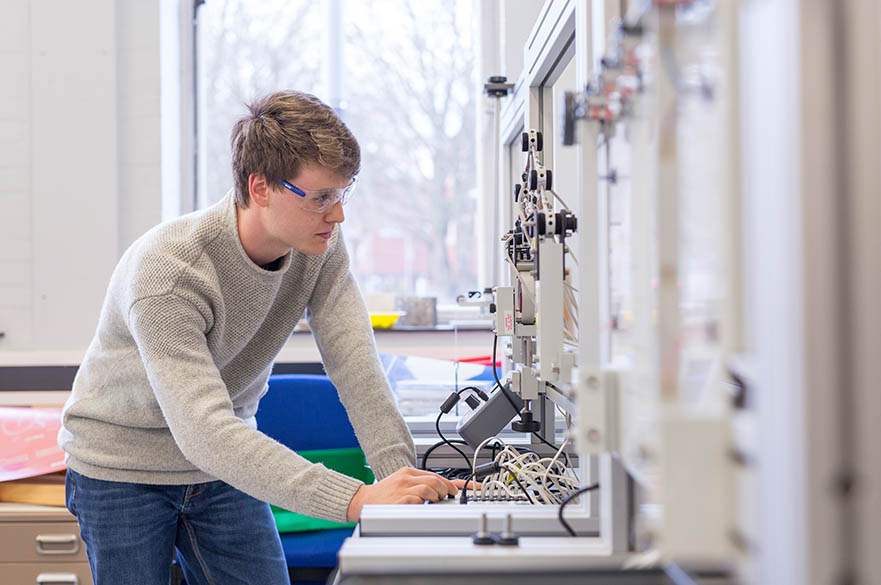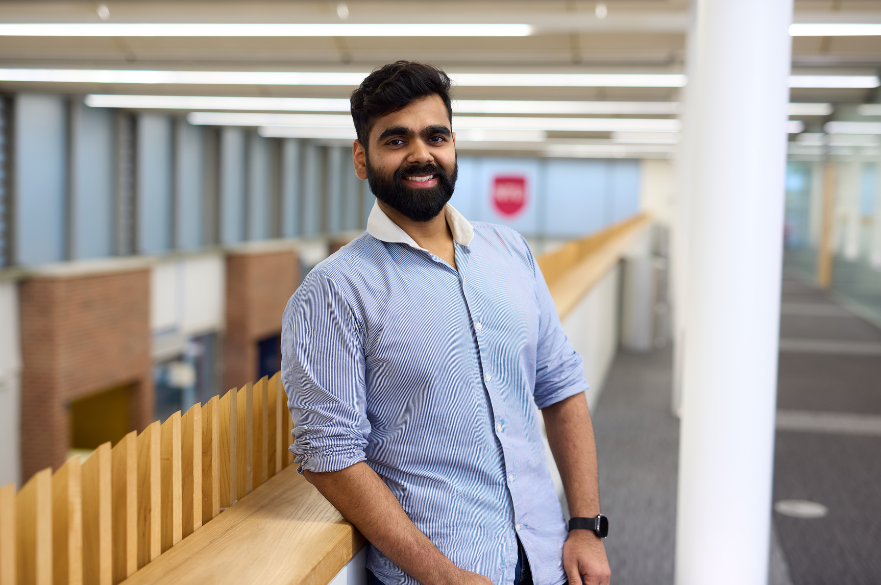Role
Teaching 'Innovation and Engineering Solutions', a course that fosters creativity and problem-solving skills through hands-on projects. In the first term, students explore Autodesk Fusion 360 for CAD modelling, Reverse Engineering and Generative Design, delving into various topics like sketching, part modelling, analysis, assembly, and more. The Reverse Engineering group project encourages students to explore the fascinating world of innovative solutions whilst working as a team.
Research areas
Kartikeya's research focus lies at the intersection of design, manufacturing and robotics.
During Kartikeya's engineering journey in India, he actively took on projects during his undergraduate years, skilfully navigating logistical, financial constraints, and inherent limitations. These challenges fuelled innovation, propelling Kartikeya to creatively design prototypes and projects, optimising designs within the given constraints and making the solutions more economical. The pursuit of efficient material usage due to limitations became a cornerstone, laying the foundation for sustainable design engineering.
Design optimisation, a guiding principle in Kartikeya's work, extends beyond immediate challenges, fostering more sustainable designs. It serves as a key element for cost savings, careful material use, and thoughtful end-of-life considerations. Embracing additive manufacturing techniques, Kartikeya contributes to minimising waste and resource consumption, weaving a compelling narrative of innovation and sustainability in his research endeavours.
Research Funding
- £2.5k, ICURe Discover, Innovate UK, UKRI, 2025
- £13.5k, International Partnership Fund, NTU, 2024-25
- £2k, UK-RAS Network+ AdHoc Funding, UKRI, 2024-25
- £2.5k, Connected Everything 'Early Career Researcher Placement Scheme', 2022-23
Explore the tangible outcomes of this approach in Kartikeya's projects and witness how design optimisation is not just about overcoming challenges but also shaping a future where sustainable practices seamlessly integrate into the fabric of engineering innovation. Discover more about Kartikeya's journey and the transformative impact of design optimization at: https://kartikeyawalia.github.io/
Publications
Walia, K., Khan, A., & Breedon, P. (2021). “The generative design process for robotic design applications.” Journal of Additive Manufacturing Technologies
Walia, K., Khan, A., & Breedon, P. (2021). “Polymer-based additive manufacturing: process optimisation for low-cost industrial robotics manufacture.” Polymers
Mansfield, N. J., Walia, K., & Singh, A. (2020). Driver seat comfort for level 3-4 autonomous vehicles. Work.
Jindal, P., Worcester, F., Walia, K., Gupta, A., & Breedon, P. (2019). Finite element analysis of titanium alloy-graphene based mandible plate. Computer methods in biomechanics and biomedical engineering.
Gill, D. K., Walia, K., Rawat, A., Bajaj, D., Gupta, V. K., Gupta, A., ... & Jindal, P. (2018). 3D modelling and printing of craniofacial implant template. Rapid Prototyping Journal
Course(s) I teach on
-
 |
|COURSE
Engineering
https://www.ntu.ac.uk/course/engineering
UN Sustainable Development Goals
Kartikeya's Main Goals




